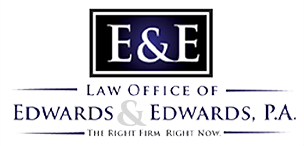Although Chapter 7 bankruptcy is known as the “liquidation bankruptcy,” you won’t lose everything. In fact, you are unlikely to lose the things you need most. In any Chapter 7 case, filers can claim a number of exemptions that protect all kinds of property – some of which might surprise you.
Bankruptcy Exemptions in Florida
Contrary to popular belief, bankruptcy – even Chapter 7 – won’t force you to give up everything you own. There are a variety of exemptions you can claim that can help you protect equity in your home, equity in a vehicle, personal property up to a specified amount, and more.
Florida’s Homestead Exemption
If your home is worth more than the remainder of your mortgage, the difference is your equity. Florida’s homestead exemption allows Chapter 7 bankruptcy filers to protect an unlimited amount of equity value in their homes (or other property covered by this exemption), which means you can keep your home if you file for Chapter 7 bankruptcy as long as you have equity in it.
There are some additional requirements:
- Your property can’t be larger than a half-acre if it’s located in a municipality
- Your property can’t be larger than 160 acres if it’s located outside of a municipality
- You must have owned your property for at least 1,215 days before filing for Chapter 7
- You are the owner on the title (as opposed to an LLC, corporation, partnership, or another entity)
If protecting your home is essential to you, you may wish to consider Chapter 13 bankruptcy to restructure your debt.
Motor Vehicle Exemption
Florida also allows bankruptcy filers to protect equity in a motor vehicle, typically the primary vehicle they drive. You can exempt up to $1,000 in equity in this vehicle as an individual or up to $2,000 if you and your spouse are jointly filing for bankruptcy.
If your car is worth more than what you owe for the car, it can be liquidated in Chapter 7. Most people need their vehicles on a daily basis, so fortunately, you can protect additional equity using the wildcard exemption (we’ll explain this below). Doing so may help you keep your car, which can make life after bankruptcy a little easier. If your car is not worth what you owe, there are options to get another car through bankruptcy as well.
Florida’s Wild Card Exemption
If you don’t use the Florida homestead exemption, you can use the wild card exemption in its place. The wild card exemption allows bankruptcy filers to protect personal property up to $4,000 in value (up to $8,000 if married and filing for bankruptcy jointly).
You have the discretion to choose which property you wish to exempt, so that can mean protecting more equity in your car, which might allow you to keep it. You can also protect any other personal property items that may be important to you.
Other Types of Personal Property
In addition to your vehicle and non-retirement bank accounts, you can protect up to $1,000 in personal property. Again, if you use the wild car exemption, this limit can increase to $4,000. Personal property includes various items throughout your home, such as electronics, appliances, furniture, art, and other items like these. It also includes checking and savings accounts.
Retirement Accounts & Pensions
You can also exempt retirement accounts and pensions from Chapter 7 liquidation. Retirement funds such as ERISA qualified pensions, IRAs, as well as retirement plans such as 401(k)s, 403(b)s, and public employee retirement benefits, are protected.
Heads of Households Can Protect Wages
Florida also permits heads of households to protect their wages. You can exempt up to $750 a week, 75% of your paycheck, or up to 30 times the federal minimum wage (whichever is greatest).
This exemption applies to paid and unpaid wages, as well as wages transferred to a bank account within the past six months.
Alimony & Child Support
If you receive either alimony or child support payments, these are exempt from bankruptcy liquidation to the extent reasonably necessary to provide ongoing support for the bankruptcy filer and/or their dependents.
Lawsuit Award Exemptions
Although bankruptcy filers can usually protect compensation for injuries or death that occurred at work, monetary awards from other types of lawsuits belong to the bankruptcy estate. This also applies to any pending legal claims that are to be determined. Protecting these awards is possible, but only by using the wild card exemption or another applicable exemption.
If your pending legal claim isn’t resolved while you’re in bankruptcy, the trustee of your bankruptcy estate can decide whether to settle your case or proceed to trial.
What Do You Need to Protect in Chapter 7?
If you are thinking about filing for Chapter 7 bankruptcy but are concerned about what you could lose, don’t hesitate to reach out to our attorneys at Edwards & Edwards, P.A. for help. Our sister-owned, family-operated law firm is dedicated to providing clients with the critical legal counsel they need and when they need it the most.
If you have any questions or concerns about how bankruptcy can impact your life, Edwards & Edwards, P.A. can assist you. For more information, request a confidential consultation when you get in touch with us.
Get started now by contacting us online.


